Prepping your home

Fill your space with supplies and essentials before your dog arrives to help them feel comfortable and safe from the start.
The first night together can be a big change for everyone, and preparing beforehand can help ensure a seamless transition.
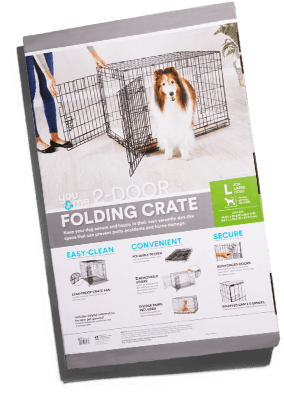
A bed or a crate for them to sleep in helps them feel safe in their new home.
Shop Crates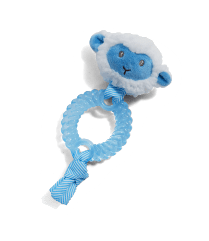
Help reduce stress and anxiety they may experience with interactive toys and long-lasting chews.
Shop Toys & Chews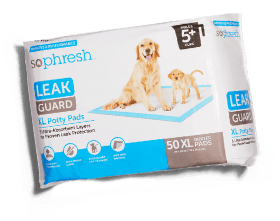
Help reduce accidents by taking your new puppy potty shortly after eating, drinking, waking up or playing.
Shop Potty PadsNutrition is the foundation of your dog's physical health.
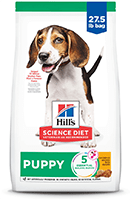
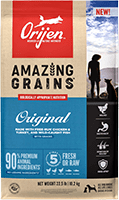
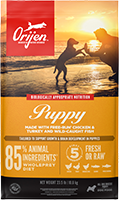
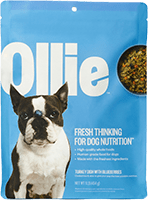

Quality nutrition helps your dog have healthier skin, a shinier coat and improved vitality and longevity.

When looking for dog food, consider your dog's age, health needs, such as food sensitivities or weight management, and choose a recipe that suits their specific lifestage. Opt for dog food with high-quality ingredients and a complete and balanced recipe.

Build a balanced bowl with quality nutrition and toppers to help ensure a healthy diet.

For healthy skin, a shiny coat, improved vitality and longevity.

Opt for dog food with high-quality ingredients and a complete and balanced recipe.
*See how Petco defines artificial ingredients at petco.com/nutritionstandards.

Help ensure a balanced diet with quality food, toppers and treats.
Finding experts you trust who provide a variety of services and solutions can help you provide for your dog's every need so they stay healthy.
Support their social health to help them make friends and gain confidence for all their firsts in new environments.
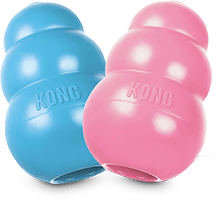
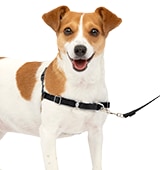
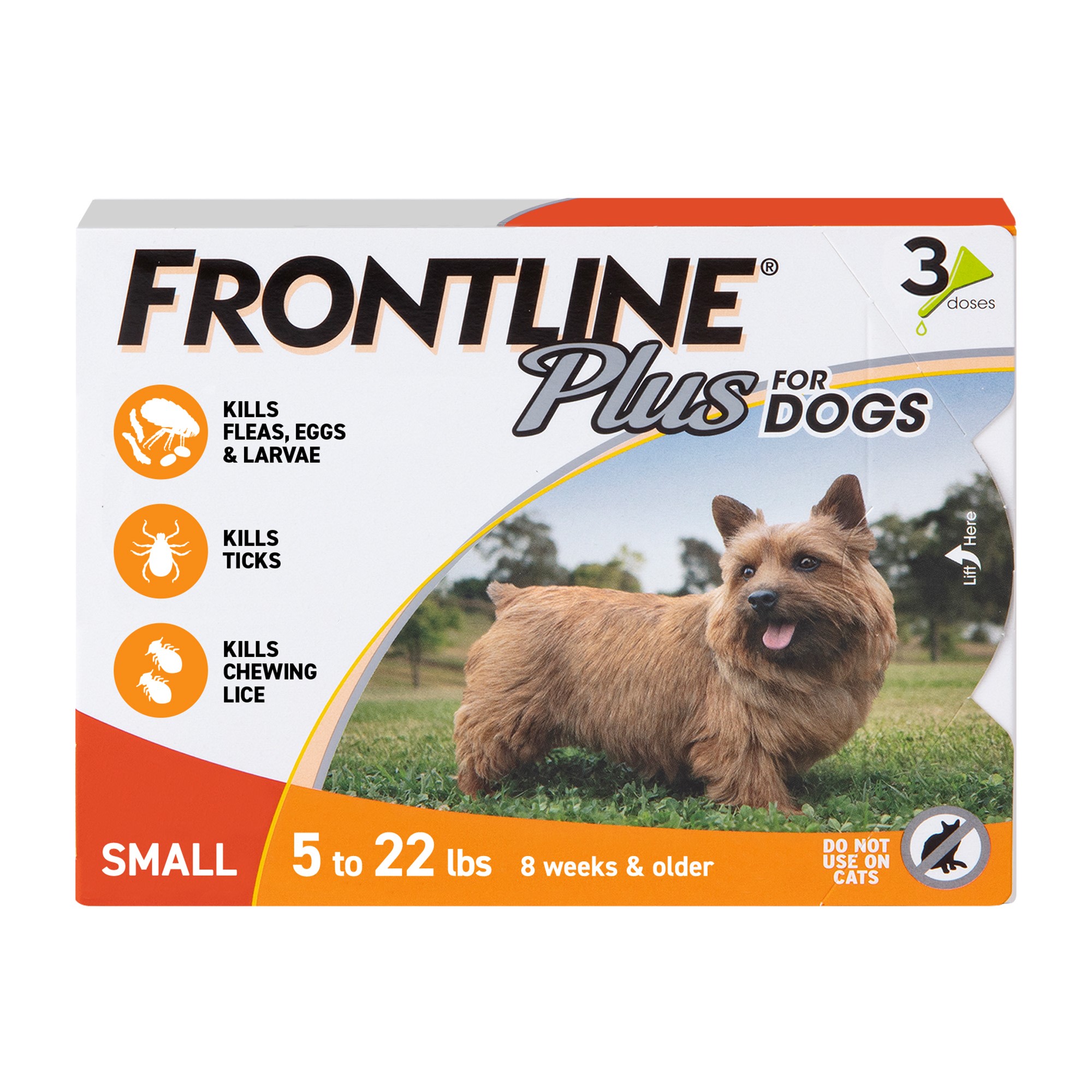
Use a preventive treatment to help protect your pup from fleas & ticks.
Shop Pest Protection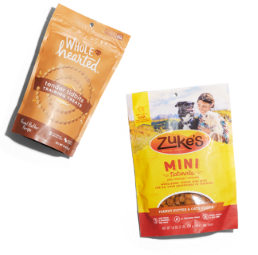
Encourage and reward desired behaviors like loose-leash walking.
Shop Training Treats
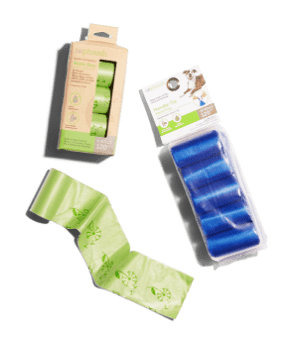
Should be readily available so you're always prepared for cleanup.
Shop Waste Bags & Dispensers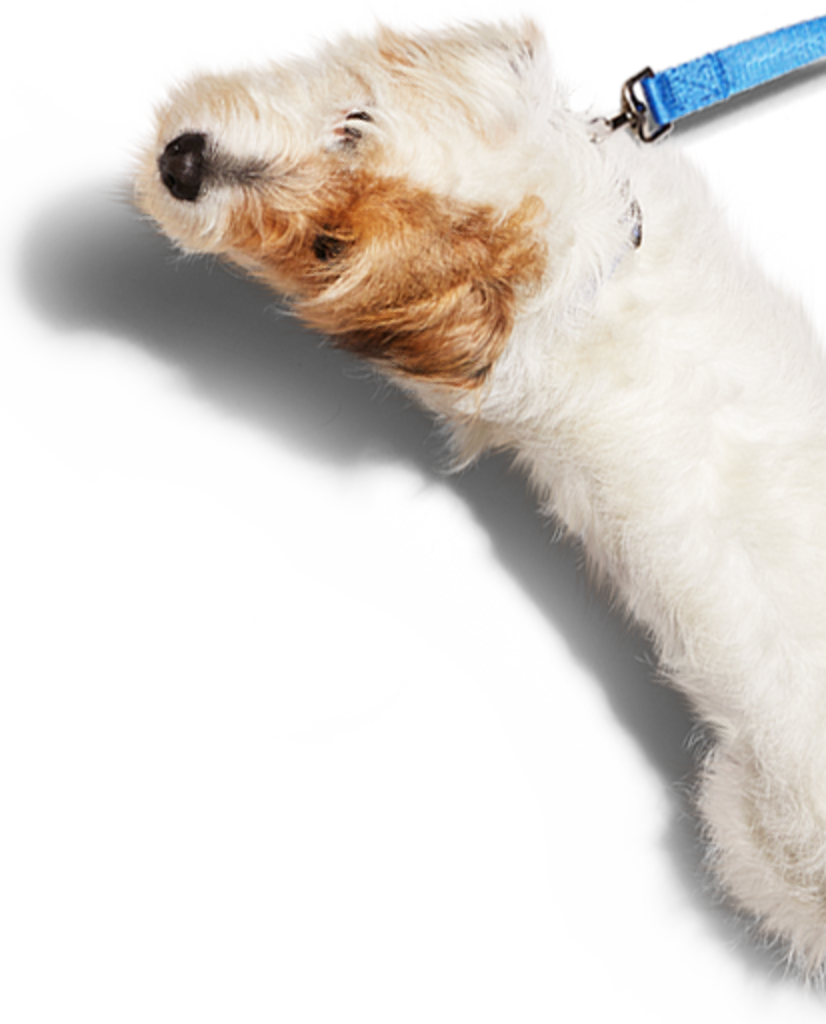

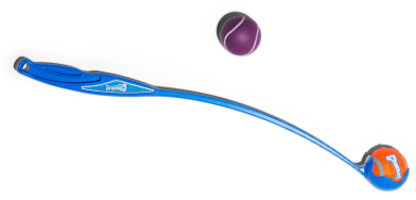
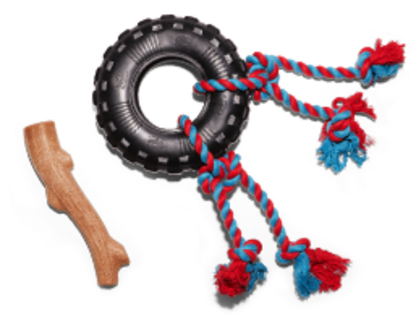
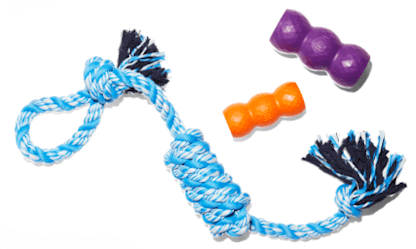
Help stimulate and enrich their mind to support their mental health and wellbeing.
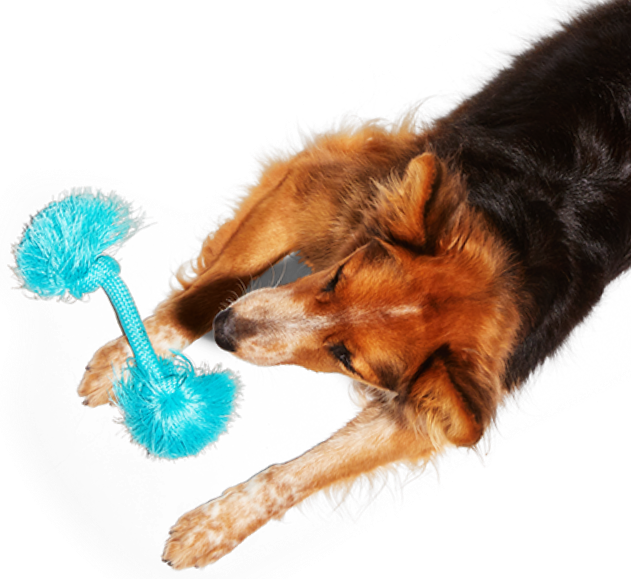
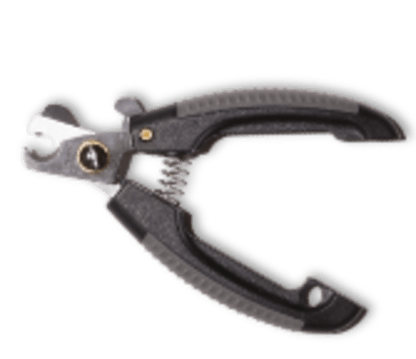
Learn the proper way to trim your new dog's nails; doing this every few weeks will help keep them at a safe and comfortable length.
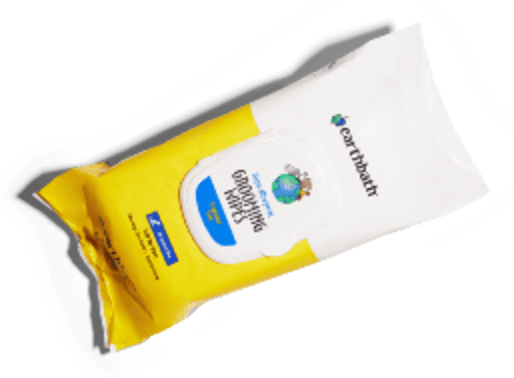
Help freshen up their coat and reduce tear staining between baths with convenient, on-the-go wipes.
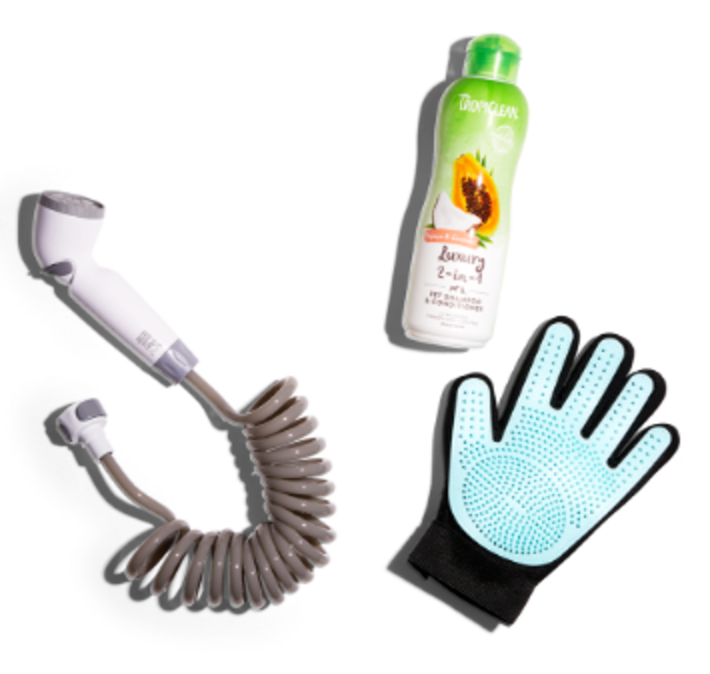
Provide care to meet their coat's specific needs by bathing with shampoo and conditioner and using breed-specific grooming tools.
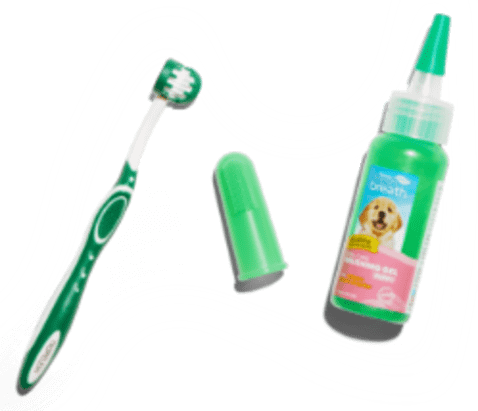
Help prevent dental disease, which occurs in 80% of dogs,* by providing a consistent dental routine.
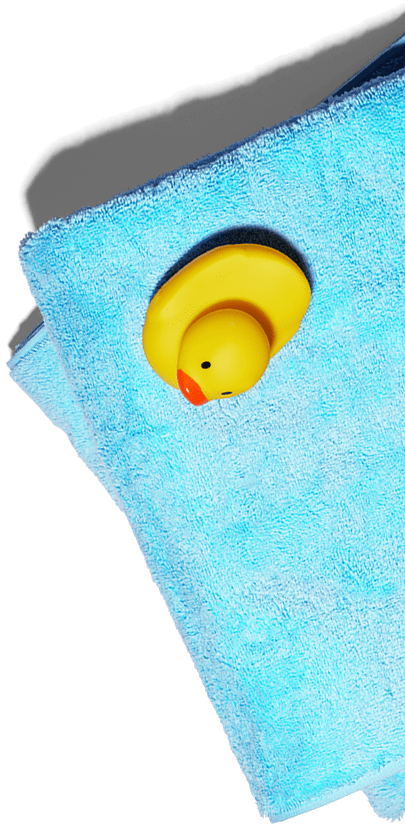
Help support their physical and mental health by providing the care and stimulation they need.
Visit us in store for tips and advice from our knowledgeable partners, and get a Whole Health Check that offers personalized product and service recommendations for your dog's specific needs.*
Find a Store*Our Whole Health Check is not a substitute for routine vet exams.
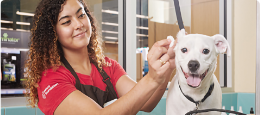

Colleen Seigler,
Petco Grooming Academy Instructor
The best way to help ensure a positive grooming experience is to bring your dog in early so they get used to being handled.


Chloe Sternlicht,
Petco-Certified Dog Trainer
I often recommend crate training to new pet parents. A crate can help their dog feel safe and comfortable while supporting successful potty training.


Dr. Whitney Miller,
DVM, MBA, DACVPM, Petco Chief Veterinarian
Regular vet exams are essential to pet care. Even if your dog is healthy, routine exams help you catch and treat issues before they become larger issues.
Vital Care helps make maintaining a routine easier and more affordable.
Dog training helps encourage desired behavior and strengthen your bond.
Regular grooming and bathing helps keep their skin & coat clean.
Catch issues early, track development and gain health insights.
If you're welcoming home a new puppy, having the right supplies on hand will help you both feel more comfortable. We recommend the following puppy products: puppy food, puppy treats and food and water bowls, potty pads, waste bags and cleanup products; toys; a collar, harness, ID tag and leash; a crate; a bed; puppy shampoo and appropriate grooming tools.
Whether you've adopted or are welcoming an older dog into your family, there are a few essential supplies that will help your new dog feel right at home. We recommend getting dog food, dog treats and food and water bowls; waste bags and cleanup products; toys, including interactive puzzle toys; a collar, harness, ID tag and leash; a crate; a bed; shampoo and appropriate grooming tools.
Entering a new environment can be overwhelming for a new dog or puppy. Meeting new people, smelling new things and experiencing a new environment can be overwhelming, so if you can plan to have the first full day at home with your new pooch, that would be best. To help them make the transition to their new space, start by creating a welcoming space before they arrive. Be sure to at least have a comfortable bed, size-appropriate crate, some toys and food and water bowls. When they come home, allow them to explore their new home under supervision, taking it one space at a time. Keep new meetings, of both people and other pets, to a minimum until they begin to gain confidence.
How quickly a dog bonds with their pet parent will differ for each dog. However, you can help build trust and forge a bond by spending more time with your dog through playtime (both indoors and outside), giving them treats (ensure treats do not make up more than 10% of their overall diet) and training them.
It's best to keep your dog in a crate in your bedroom for the first few nights. This helps establish important boundaries while also letting your puppy know that you are nearby should they need you. Crate training can also help with the potty training process.
Many factors will impact how long your puppy can hold their bladder. To reduce the likelihood of nighttime accidents, try crate training your puppy so they can tell you when they need to go. Be sure to reduce their food and water intake right before bedtime and take them outside right before they go to sleep. Within a few months, you'll notice your pup being able to go longer stretches before needing to go outside.
Puppies who are 10 weeks old or younger will likely need to wake up in the night to go to the bathroom and, if left to their own devices, may decide the middle of the night is a great playtime! However, by beginning crate training early, your pup will be more likely to associate time in their crate with rest time, only waking you up when they need a potty break.
Before bringing home your puppy, be sure to stock up on the basics like puppy food, puppy treats and food and water bowls, potty pads, waste bags and cleanup products; toys; a collar, harness, ID tag and leash; a crate; a bed; puppy shampoo and appropriate grooming tools.
You'll also want to consider booking their remaining vaccinations with a veterinarian and looking into dog training options.
New Cat Owner Essentials
Husky Puppy Essentials
Gifts For New Puppies
Puppy Breeding Supplies
Newfoundland Puppy Supplies
Must Have Dog Items
Dog Training Essentials For Small Dogs
Dog Potty Training Essentials
Dog Training For Beginners
Presents For Puppies
Dog Walking Essentials
New Kitten Supplies
Pet Starter Kits
Puppy Food
First Apartment Pet Essentials
Mini Goldendoodle Supplies
Pet Camping Trip Supplies
Dog Potty Training & Cleanup
Apartment Friendly Pet Essentials
Pet Parents Accessories
Pets First Dog Apparel Accessories
Puppie Love
EveryYay Dog Training & Behavior Supplies
Pets First Dog Chew Toys
Pets First Dog Collars
Puppie Love Accessories
Petstages Dog Training & Behavior Supplies
Pets First Dog Clothes & Accessories
Pet Life Puppy Toys
Pets First Dog Toys
Conscious Step Pet Parents Accessories
Pet Adobe Dog Gates & Pens
3 Dog Pet Supply
PoochPads Dog Training & Behavior Supplies
So Phresh Dog Potty Training & Cleanup
Pets First Dog Collars, Leashes & Harnesses
MyPet Dog Crates, Gates, & Housing Accessories
Lucky Dog Dog Crates, Kennels, & Accessories
Pet Adobe Dog Crates, Gates, & Housing Accessories
HICC Pet Dog Health & Wellness
I am a new puppy pet parent, what tips can you give me to raise them right?
What type of dog is my new puppy
Just got a new dog born in May. I haveni idea what I should be getting her checked out for or what she needs.
New puppy how do I deal with accident and first night transition
Hi i just got a female puppy and am concerned on what type of food should i get her i would also like to know how to identify what breed she is sincerely Sofia new Puppy mom. Thanks
My pet puppy is 28 days old now.this is my first time to have a pet.i need to know everything to take care of my puppy can you help me with this?
I am bringing home a black lab puppy on Saturday, May 19, 2018 and she was born April 13, 2018. The current owner said she got all shots except parvo. This is my first time owning a dog, so I want to make sure I'm fully prepared and do everything I need for her to have a healthy transition into my home. Do you have any advice?
I have adopted a street dog (a small pup). I live in India. I am a first time parent. Please guide me through this. What are the first necessary steps I need to take in order to ensure my pup's health as well as my family's? Also, which vaccines should he be provided with? How to train him and the best dog food for him at this age? How much exercise does he need?
I just got a new puppy i wanted to see what i could feed her how often i feed her if i use potty pads or take her out how often i take her out to potty and when do i give her 1st shot and can i get more info on how to take care of her please
Hi i am a first time owner, when the dog is a puppy, i will give it all the attention it needs and take care of it well, but i go to school and i have younger siblings and my parents go to work , so i need a dog with low seperation anxiety, a large dog, and a natural protector, keep in mind i am a first time owner. I have done my research for more than a year, taking quizzes, looking at lists and looking at peoples opinions in websites and way more , this is my last resort.
What should I look for in choosing a food for my new puppy?
How do I bring a new puppy home and per pad train . I have a 8 yr old shih Tzu at home already. She's also a small shih Tzu and is pre pad trained since we got her